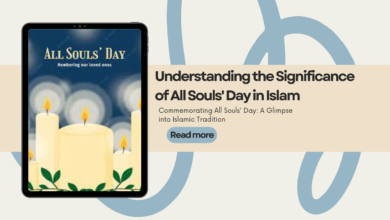How did Abu Bakr spread Islam?

Introduction
The rapid and widespread dissemination of Islam during its early years can be attributed to the dedicated efforts of its pioneers. Among these influential figures, Abu Bakr, the close companion and first caliph of the Prophet Muhammad, played a pivotal role in spreading the message of Islam across the Arabian Peninsula. His unwavering faith, leadership skills, and tireless dedication to the cause helped lay the foundation for the expansion of Islam beyond its birthplace.
The Early Years of Abu Bakr:
Abu Bakr, also known as Abu Bakr as-Siddiq, was born in Mecca around the year 573 CE. He was a respected merchant known for his honesty, integrity, and benevolence. These qualities endeared him to the people of Mecca, making him a figure of trust and respect within the community.
Embracing Islam:
Abu Bakr’s path to Islam began when he was introduced to the teachings of the Prophet Muhammad. Recognizing the truth in Muhammad’s message, Abu Bakr wholeheartedly embraced Islam, becoming one of the earliest converts. His conversion marked a significant milestone in the growth of the Islamic community.
The Role of Abu Bakr in the Early Muslim Community:
Abu Bakr’s close relationship with Prophet Muhammad allowed him to learn directly from the source. He gained a deep understanding of the Quranic teachings and the principles of Islam. His support and loyalty to the Prophet were unwavering, even during the difficult times when the early Muslim community faced persecution in Mecca.
Migration to Medina:
The migration (Hijra) of the Prophet Muhammad and his companions from Mecca to Medina in 622 CE was a turning point in the spread of Islam. Abu Bakr was one of the first to join the Prophet in this journey, highlighting his commitment to the faith and the cause. In Medina, the Muslims found a more conducive environment to practice and propagate Islam freely.
Abu Bakr’s Role in Dawah (Preaching):
In Medina, Abu Bakr continued to support the Prophet Muhammad in various ways. He was a skilled orator and played a vital role in conveying the message of Islam to both the local tribes and visiting delegations. His persuasive abilities and heartfelt conviction made him an effective preacher, and his efforts contributed to the growing number of converts to Islam.
Financial Contributions:
Abu Bakr was also known for his generosity and willingness to financially support the nascent Muslim community. He donated substantial amounts to aid the poor and needy, as well as to provide for the community’s needs. His contributions not only alleviated the struggles of fellow Muslims but also drew people to the faith through acts of compassion.
Caliphate and Consolidation:
After the passing of the Prophet Muhammad in 632 CE, Abu Bakr was chosen as the first caliph. His leadership during this critical period ensured the unity and stability of the Muslim community. He faced the Ridda Wars (Wars of Apostasy) and successfully consolidated the Islamic state, preventing its fragmentation.
Expansion of Islam:
Under Abu Bakr’s leadership, the Muslim armies began the process of expansion beyond the Arabian Peninsula. The conquest of surrounding lands, such as the Byzantine and Sassanian empires, brought Islam to new regions and peoples. The spread of Islam was not just through military conquest but also through the values and principles exemplified by the Muslim leadership.
Conclusion
Abu Bakr’s exceptional role in spreading Islam cannot be understated. His unswerving dedication, financial support, effective communication, and leadership were instrumental in the swift growth and establishment of the Islamic faith. His legacy continues to inspire Muslims worldwide, highlighting the power of faith, compassion, and determination in effecting positive change and spreading a message of unity and peace.
FAQs about How Abu Bakr Spread Islam
Who was Abu Bakr and what role did he play in the spread of Islam?
Abu Bakr was a close companion of the Prophet Muhammad and the first Caliph of the Islamic community. He played a pivotal role in the spread of Islam after the death of the Prophet.
How did Abu Bakr contribute to the spread of Islam after the death of Prophet Muhammad?
After the Prophet’s death, Abu Bakr took charge as the leader of the Muslim community and worked to consolidate the Islamic state. He quelled the apostasy movements that arose after the Prophet’s passing, ensuring the unity of the Muslim community.
What was Abu Bakr’s approach to expanding the Islamic territory during his caliphate?
Abu Bakr initiated military campaigns known as the “Ridda Wars” against various tribes that had renounced Islam after the Prophet’s death. He also led military expeditions to neighboring regions, such as the Byzantine and Sassanian Empires, thereby expanding the reach of Islam.
How did Abu Bakr address the compilation of the Quran?
Abu Bakr played a vital role in the compilation of the Quran. He appointed a committee, led by Zaid ibn Thabit, to gather and organize the scattered revelations of the Quran into a single, unified book.
What was the significance of Abu Bakr’s leadership during the Ridda Wars?
Abu Bakr’s leadership during the Ridda Wars was crucial in maintaining the unity of the Muslim community. His decisiveness and strong leadership ensured that the apostasy movements were suppressed, allowing Islam to continue spreading.
How did Abu Bakr’s leadership style contribute to the appeal of Islam?
Abu Bakr was known for his simplicity, humility, and fairness. His leadership style showcased the virtues of Islam, attracting people to the religion through his personal example and just governance.






